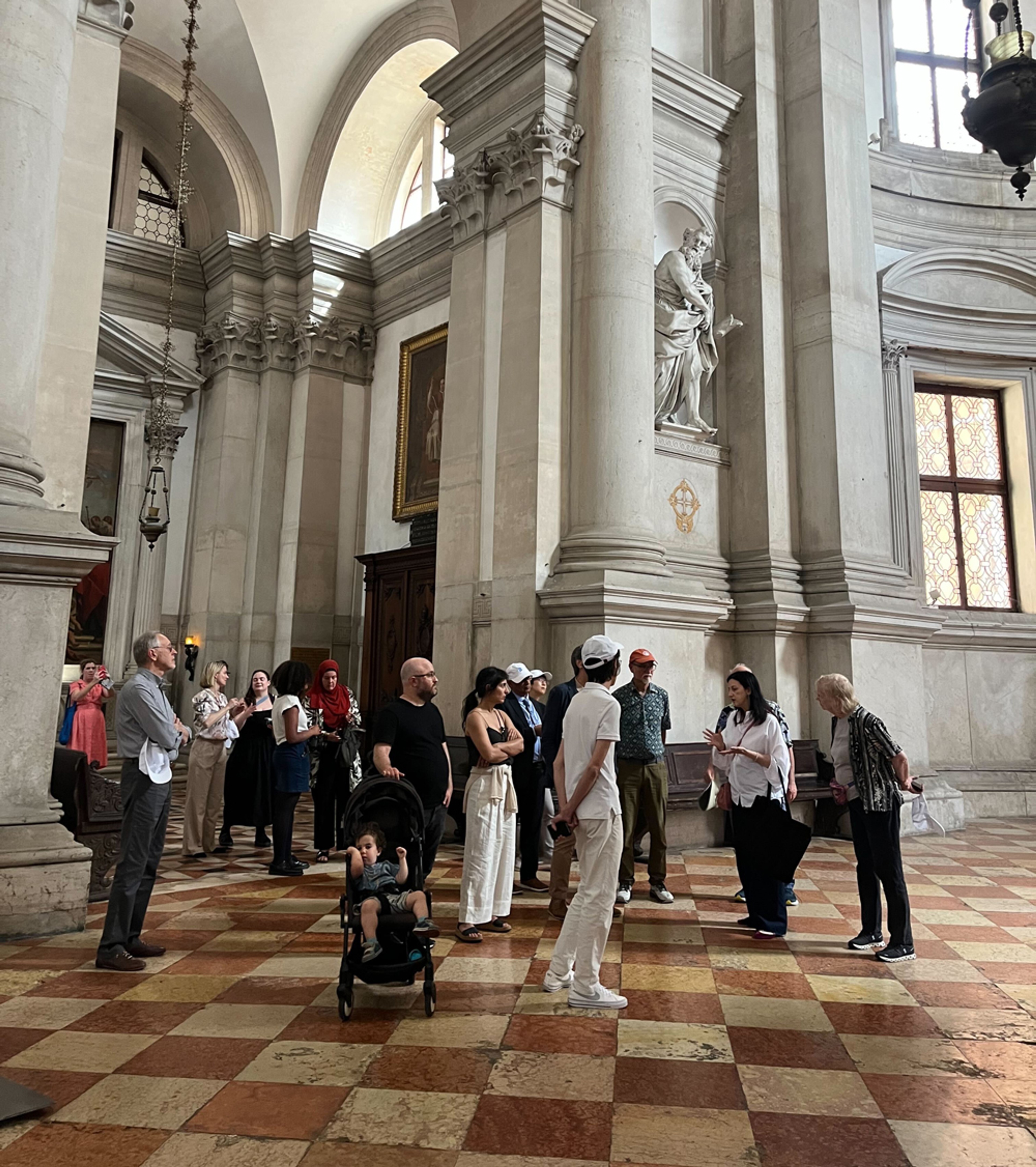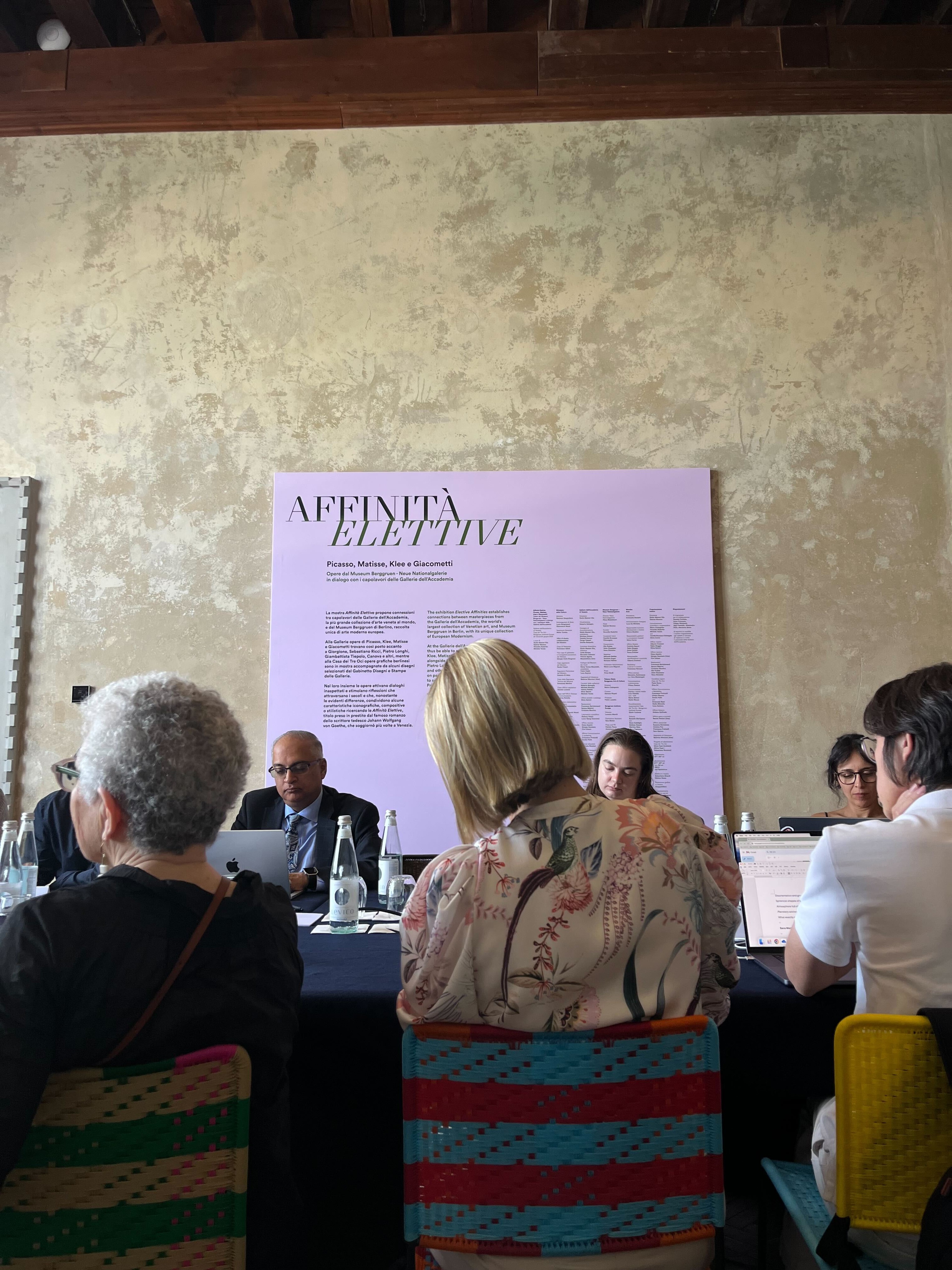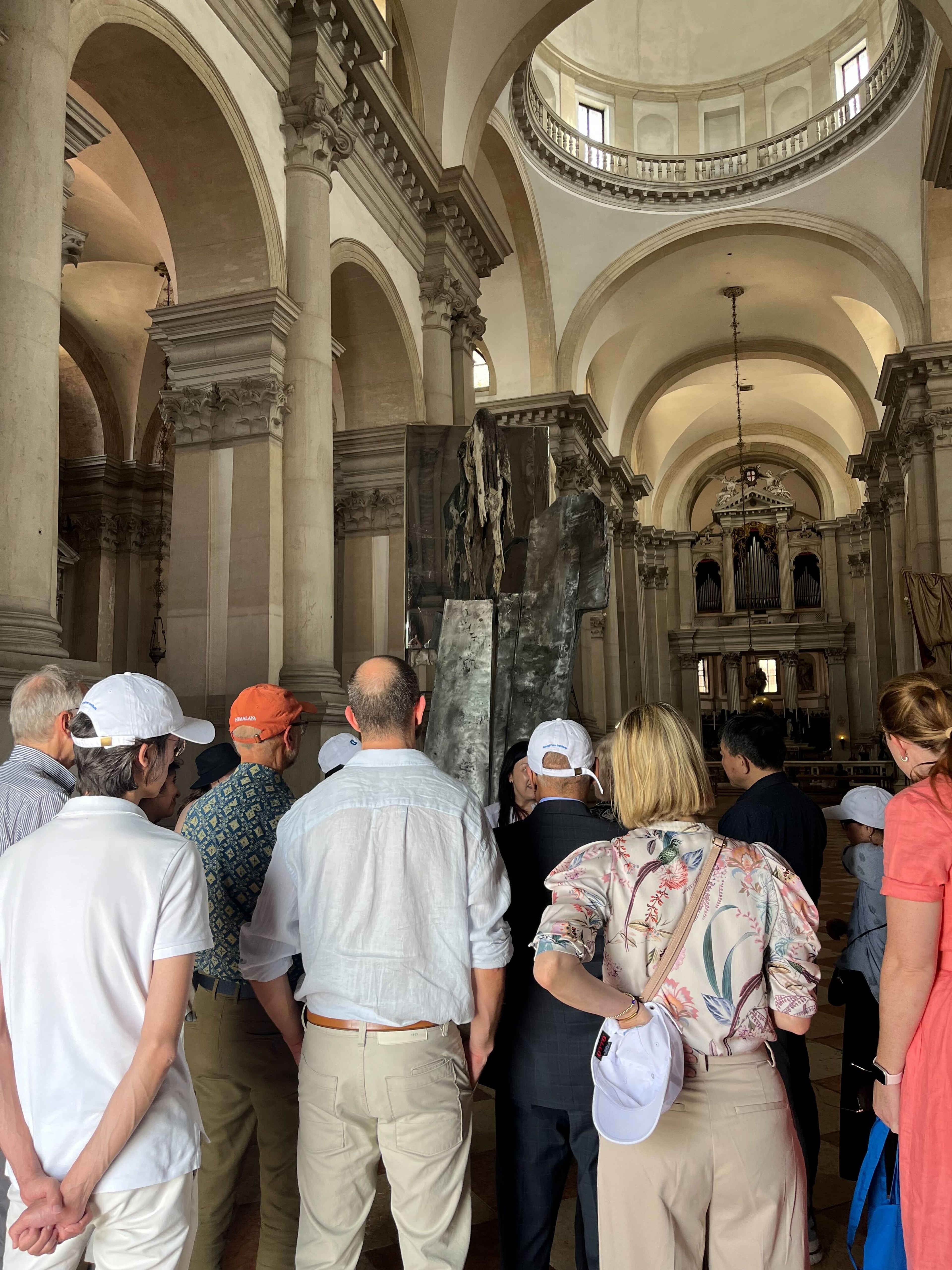Planetary Metaphysics Colloquium

- Date: June 19, 2024
- Location: Casa dei Tre Oci, Venice, Italy
Creating a common language of “the Planetary” can make available new perspectives on collective action challenges across a range of political, social, economic and scientific domains. What we call “planetary metaphysics” describes the ongoing effort to understand the relationship between our humanity and our planet. If metaphysics as a branch of philosophy aims to provide coherent accounts of the structure and dynamics of the world in the abstract, then planetary metaphysics centers the specific celestial body that has nourished life as a salient being within the constellation of beings.
During a two-day colloquium held at the Berggruen Institute’s Tre Oci in Venice, an interdisciplinary collective of natural scientists, historians, philosophers, spiritual thinkers and political theorists came together to think outside of intellectual silos and develop “planetary metaphysics” into a full framework. Jonathan Blake and Boris Shoshitaishvili of the Planetary theme, together with Shanghai-based contemporary art gallery Capsule and Berggruen Institute leadership, hosted a “planetary metaphysics” workshop to discuss and debate three concepts of planetary humanity that have emerged in the Earth sciences – the noosphere, Gaia, and the Anthropocene.
In the months leading up to the colloquium, contributors including Scott Gilbert, Lisa Sideris, Christiana Zenner, Gary Tomlinson, John Thatamanil, Aminah Bradford, Megan Bromley, Inho Choi, Robin Wang, Jerusha Rhodes, Dingxin Zhao and Chris Chapple, worked with the Institute to produce essays setting the noosphere, Gaia, and the Anthropocene in dialogue with a variety of traditions and disciplines. In the months following the workshop, these will be revised and published in an edited volume on “planetary metaphysics” organized according to these three Earth science interpretations of humankind.


"Our gathering confirmed that approaching the human through the Earth sciences creates fresh intellectual common ground, bringing natural scientists, humanities scholars, and experts in ancient spiritual and philosophical traditions into productive, focused dialogue. Through the concepts of the noosphere, Gaia theory, and the Anthropocene, and the metaphors beneath each, participants found new angles on contemporary questions of planetary scope. From anthropogenic impact on the Earth System to the proliferation of artificial intelligence and the ongoing discovery of multicellular relationships with the vast microbial world, combining Earth science perspectives with philosophical thought revealed new resonances with, as well as challenges to, traditions of thinking the human in a metaphysical key."
– Boris Shoshitaishvili